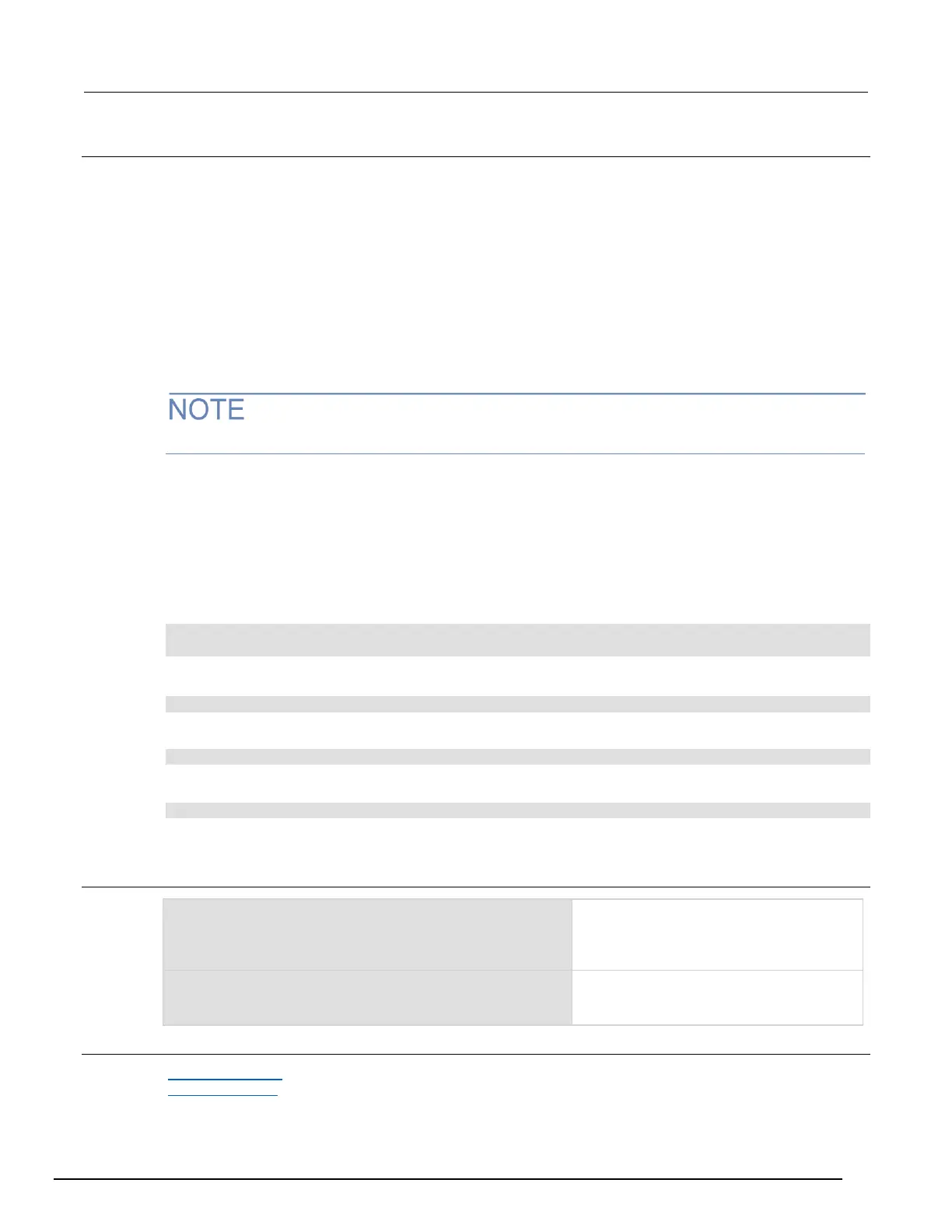Details
For options that save more than one item of time information, each item is comma delimited. For
example, the default format will be <date>, <time>, and <fractional seconds> for each
reading, separated by commas.
The file extension .csv is appended to the filename if necessary. Any file extension other than .csv
generates errors.
Because dmm.appendbuffer() appends data, it does not include header information. The
dmm.savebuffer() function does included header information.
The index column entry starts at 1 for each append operation, which is also what the
dmm.savebuffer() command does.
The reading buffer files saved to the USB flash drive will always have an extension of .csv.
Errors are generated:
• If the reading buffer does not exist.
• If the reading buffer is not a DMM buffer.
• If the destination filename is not specified correctly.
• If the file extension is not set to CSV. (You can leave the file extension blank.)
Examples of valid destination file names:
dmm.appendbuffer("bufferVar", "/usb1/myData")
dmm.appendbuffer("bufferVar", "/usb1/myData.csv")
Invalid destination filename examples:
dmm.appendbuffer("bufferVar", "/usb1/myData.")
— The period is not followed by the CSV extension.
dmm.appendbuffer("bufferVar", "/usb1/myData.txt")
— The only allowed extension is .csv. If .csv is not assigned, it is automatically added.
dmm.appendbuffer("bufferVar", "/usb1/myData.txt.csv")
— Two periods in the file name (myData_txt.csv would be correct).
Example
